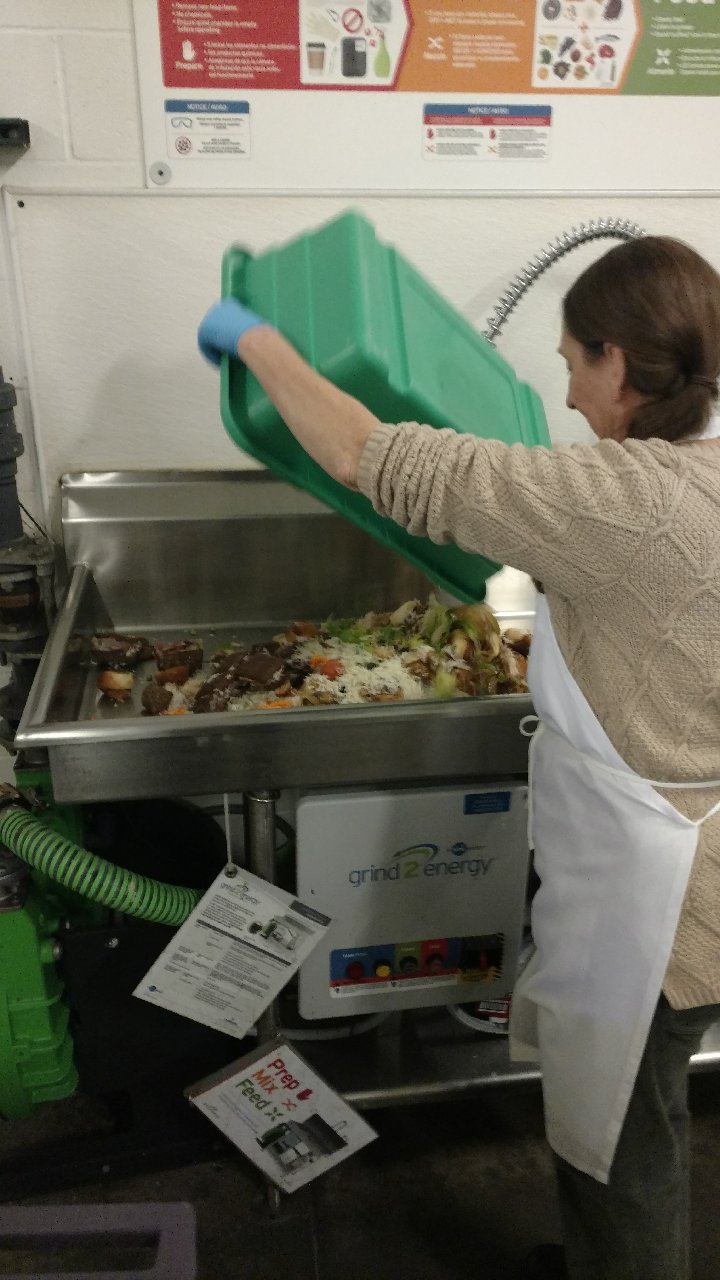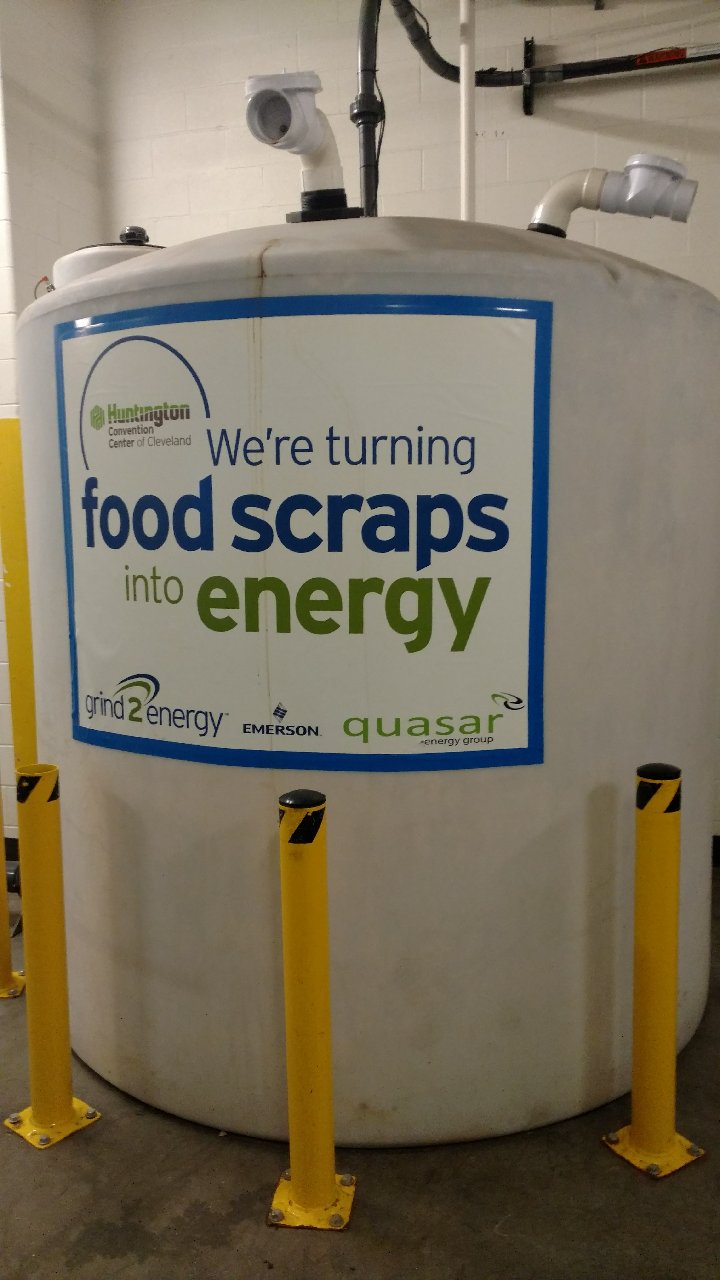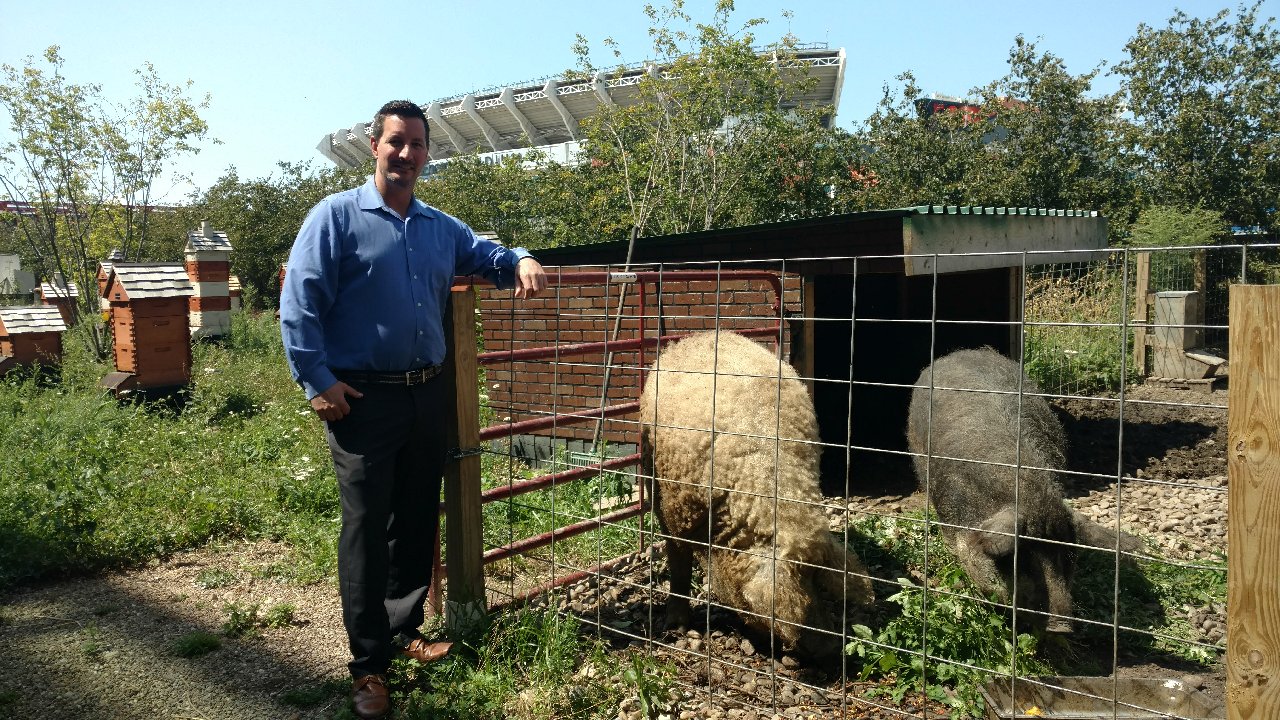Reinventing the daily Grind: CLE’s convention center is converting food waste to fuel
Following in the footsteps of FirstEnergy Stadium, the Cleveland Indians, and JACK Cleveland Casino, the Huntington Convention Center of Cleveland has implemented a large-scale food waste recycling system known as Grind2Energy—becoming the first and only convention center in the country to do so.
 The concept is relatively simple: team members from on-site caterer Levy Restaurants load food waste and scraps into a disposal unit, which grinds up the food into a semi-liquid mixture that is stored in a holding tank. Collinwood-based Quasar Energy Group then transports the material to its anaerobic digesters, which extract methane to convert the waste into renewable energy (such as electricity, natural gas, or nutrient-rich fertilizer).
The concept is relatively simple: team members from on-site caterer Levy Restaurants load food waste and scraps into a disposal unit, which grinds up the food into a semi-liquid mixture that is stored in a holding tank. Collinwood-based Quasar Energy Group then transports the material to its anaerobic digesters, which extract methane to convert the waste into renewable energy (such as electricity, natural gas, or nutrient-rich fertilizer).
“This process not only turns the food into an energy source, but eliminates waste and smell,” explains Dave Johnson, the center’s Director of Public Relations and Marketing.
And it’s making an impact—in 2017, the Grind2Energy system ground 82,000 pounds of food waste and produced enough natural gas to heat 22 homes, electricity to power 15 homes, and more than 5,700 pounds of fertilizer while eliminating greenhouse gas emissions equivalent to 65,653 automobile miles.
At a venue like the Huntington Convention Center of Cleveland, numbers like this matter. After all, the facility produced two tons of food waste for the Republican National Convention alone, and 222 events were held in 2017—attracting 222,656 hungry visitors. Plus, according to the U.S. Department of Agriculture, between 30 and 40 percent of our nation’s food supply is wasted in general.
With that in mind, that’s not all the LEED Gold-certified convention center is doing to reduce its culinary footprint. The center made headlines last year for its on-site urban farm, which serves double-duty producing foods for the catering department and recycling kitchen scraps. A flock of 29 chickens satisfies a quarter of the facility’s shelled egg use, and raised beds produce a bounty of greens, herbs, and vegetables. The farm’s 13 beehives generate 2,000-plus pounds of honey annually, and a trio of Mangalista heritage breed pigs nosh about 5,500 pounds of food that would otherwise be discarded.
 “Food waste doesn’t go into the trash,” explains General Manager and Executive Chef Matt Del Regno. “And what we don’t feed to the pigs or can’t repurpose in another way goes into the Grind2Energy system.”
“Food waste doesn’t go into the trash,” explains General Manager and Executive Chef Matt Del Regno. “And what we don’t feed to the pigs or can’t repurpose in another way goes into the Grind2Energy system.”
The center’s sustainability efforts are also helping other organizations in the community. In 2017, 10,000 pounds of leftovers were donated to the Greater Cleveland Food Bank for a total of 12,500 meals. The aggressive food recycling program also reroutes surplus food and leftovers to people in need at Ed Keating Center, including 600 pounds of pre-prepared food from the School Nutrition Association of Ohio convention.


